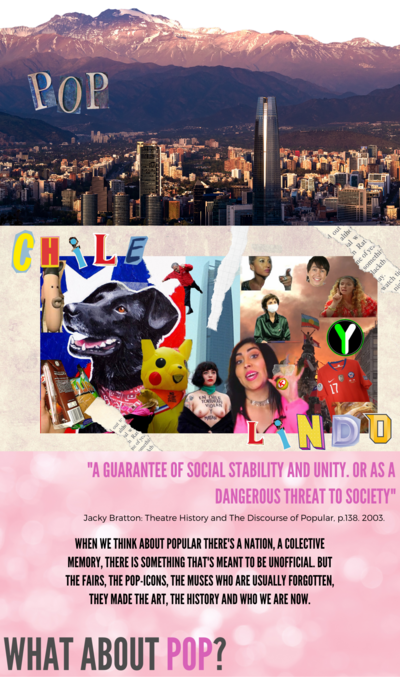Students
Students´ feedback
Sumpee Borah - India
Hello, this is Sumpee, offering my warm gratitude and good wishes to the organizers of the workshop. I consider myself as an enthusiastic soul who always desires to learn new things, to gather new experiences and to meet new people. This workshop opened the door for me in several directions. Understanding Performance History and Historiography was a very new thing for me. Apart from regular academic discussions the workshop helped me to understand the concepts in a better way by analyzing it with different lances from different parts of the world. The materials, visuals, documents provided to us were very much deep, interesting and thoughtful as I have found. The discussion part was engaging, different opinions of the participants were thought provoking for me. I was continuously trying to listen, to digest and to relate it with my existing knowledge. The most interesting part for me was the performance analysis sessions where we had to analyze performances by observing photos, posters, newspaper cuttings, paintings etc. Though the materials were similar for everyone yet each ones observation and analysis was so different. Even when we were discussing among in-group members different perspectives were taking place, where I observed the dominance of everyone’s own socio-cultural and political influences. Another important part of the planning of the workshop was to prepare the participants for each week with different materials which was reducing the level of discontinuity from one week to another. If I talk about my emotional growth, I was able to make new friends from Chile and Cologne, frequently sharing my thoughts with them related to the workshop as well as other things. This is the best experience for me from the workshop.
Due to the online mode of conversation, sometime it was becoming quite difficult to understand the discussions, to concentrate for 3-4 hours, to have the same level of energy at all the time to respond properly. But we have to appreciate the dedication of the facilitators who made it possible. I wish if I could meet them physically and to learn things in a different way. Hoping for the best.
Regards
Sumpee Borah
M.Phil student, Theatre and Performance Studies
School of Arts and Aesthetics, JNU
Fernando Gallegos, Lisa Eriksson & Tim Heuper - Germany
Diego González Vega & Paolo Parada Urrutia - Chile

Baljeet Singh - India
Respected Madam/Sir,
I personally enjoyed the workshop sessions. In the beginning we were asked to read images and paintings from our point of view followed by a discussion about their original context. This gave us an opportunity to speak up and communicate with people from Cologne and Santiago without following any well grounded approach (or previous preparation). Moreover, starting from zero it ended up providing us with a lens through which we can analyse and understand various issues related to Theatre and Performance studies, Aesthetics and Politics in general and apply them in the contexts of three cities i.e. New Delhi, Santiago and Cologne in particular. Even if the workshop was conducted online, most of the sessions were interactive and each of us got a chance to express our ideas and opinions. By tracing the history of oppressive regimes in terms of their art, society and politics we were able to understand the handling of the Covid-19 pandemic by such regimes in the contemporary times. In brief, in the name of pandemic the states and its institutions around the world are oppressing and suppressing the masses. It would be relevant to mention two important articles and few images in this respect -(1) Theatre History versus Theatre Canon: The Chilean Case and (2)Torture and Disappearance in Chilean Theatre from Dictatorship to Transitional Justice and (3) The images/paintings about the play Nabbana which dealt with the Bengal famine of 1943.
I am thankful to the organisers and teachers for providing me with an opportunity to attend this workshop, especially Peter Marx, Milena Grass, Prof. Bishnupriya Dutt and all the participants.
Yours Sincerely,
Baljeet Singh
M.Phil. School of Arts and Aesthetics,
Jawaharlal Nehru University,
New Delhi-110067
Paolo Parada - Chile
The Popular
In the seminar, I have faced a great struggle regarding language. Not having a good command of English, it has been a challenge to participate in both the classes and doing the readings. However, I have sought to cross this barrier to generate ties of knowledge outside the national context, to delve into various topics.
Within the themes that have been most relevant to me, the popular is a focus of interest for me. Thinking about what is documented, how it is documented, and what elements make up the popular are very interesting questions to be investigated in more depth, even more so today.
Creating archives linked to collective aesthetic experiences can reflect the identity of a community, but what about the experiences not aligned with cultural hegemony? And what about artistic expressions generated from this resistance?
Chile has gone through a quite radical process of social changes. The social demonstrations and the artistic expressions made in that context, reflect the elements that constitute a collective identity that for the most part do not respond to canonical culture. That is why that work is of vital importance to be able to recognize ourselves as a society and translate that into records that reflect us as such in the future. I think that is our job: to be aware that we are part of the cultural hegemony and look for ways to connect with the social environment.
Santiago
Paolo Parada
